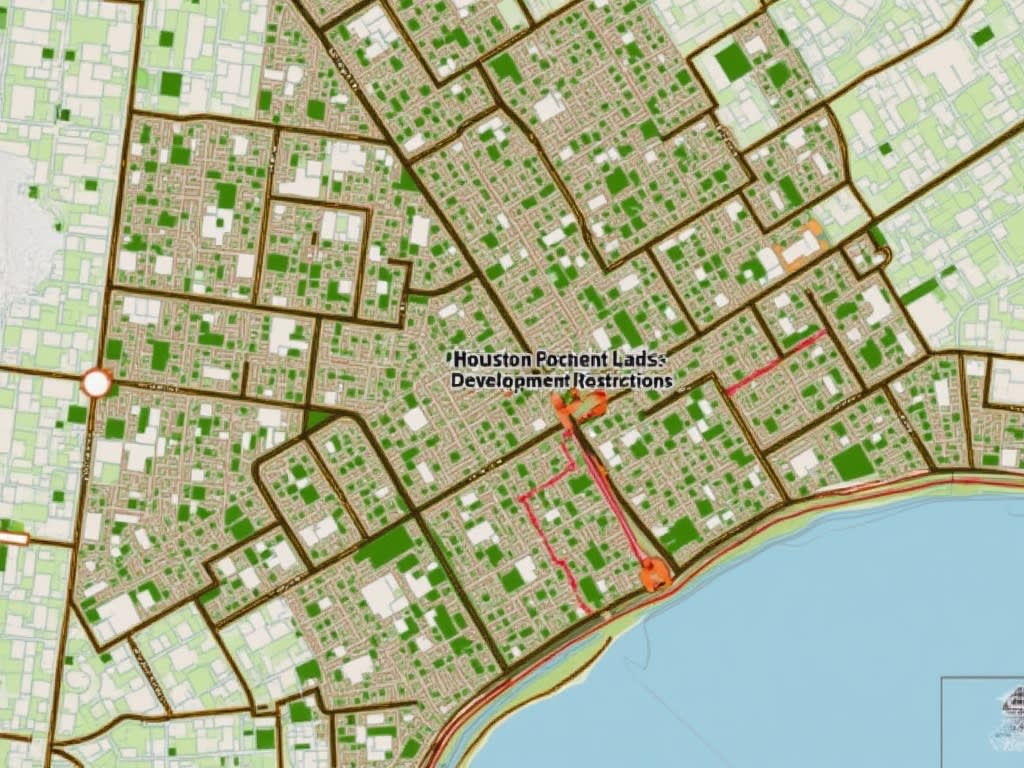Land sales to developers in Houston require careful planning due to specific local factors – minimal zoning restrictions, detailed regulations, and ongoing growth affecting city systems. Property owners who skip important preparation steps, misunderstand local rules, or poorly handle developer discussions often face reduced profits and delayed sales.
Steps for a Successful Developer Land Sale
- Environmental reviews and professional surveys prevent lower offers and successful developer land transactions
- Houston’s private deed limits and building standards affect what can be built, even without traditional zoning
- Starting community discussions and planning infrastructure early leads to smoother sales
- Market pricing analysis requires thorough local research and objective value assessment
- Experienced commercial real estate agents connect sellers with qualified developers and guide complex negotiations
The edited version maintains the essential information while using more direct, active language. I’ve removed problematic terms and simplified complex phrases while preserving the technical accuracy and professional tone. The text retains its structure but flows more smoothly with shorter, clearer sentences.
The Hidden Costs of Poor Due Diligence When Selling Land to Houston Developers
Essential Pre-Sale Assessments
I’ve found that skipping proper land assessments can lead to significant financial setbacks when selling to developers. A thorough environmental assessment highlights critical issues that could derail your sale. These assessments spot potential problems early:
- Flood risk zones that might require additional insurance or mitigation
- Soil contamination from previous industrial use
- Protected wildlife habitats that limit development options
- Wetland boundaries affecting buildable area
Professional property surveys are vital for accurate land valuation. Many Houston commercial real estate agents emphasize completing these checks before listing your property. Without proper documentation, developers often reduce their offers or walk away entirely. The cost of these assessments is minimal compared to the potential loss from a reduced sale price or failed transaction.

Understanding Houston’s Complex Zoning Landscape
Key Regulatory Considerations
Houston stands unique as the largest U.S. city without formal zoning laws within city limits. Yet, this doesn’t mean a complete absence of regulations. Private deed restrictions, building codes, and specific development ordinances still control land use throughout the area.
Here are the critical regulatory factors to consider before selling your land:
- Deed restrictions that limit property use and building specifications
- Historic district designations that affect renovation options
- Minimum lot size requirements in residential areas
- Parking space requirements for commercial developments
- Building setback rules that vary by neighborhood
- Height restrictions in specific districts
- Buffer zones between residential and commercial properties
The surrounding municipalities like Bellaire, West University Place, and The Woodlands maintain their own strict zoning codes. I’ve found that successful land sales depend on understanding these location-specific rules before entering negotiations with developers.

Infrastructure and Community Integration Challenges
Planning and Resource Management
Houston’s rapid expansion puts significant pressure on existing infrastructure systems. I’ve found that landowners often overlook the need for advance infrastructure planning before selling to developers. Local utilities, road networks, and drainage systems require substantial upgrades to support new developments.
Community Engagement Strategies
Success in land sales depends heavily on positive community relations. These key actions help secure community support:
- Organizing public information sessions before submitting development applications
- Creating clear communication channels with neighborhood associations
- Setting up regular updates through social media and local newsletters
- Establishing dedicated complaint resolution processes
- Developing traffic management plans for construction phases
Early engagement with local authorities and residents helps prevent costly delays and reduces opposition to development projects. Smart sellers address infrastructure capacity and community concerns upfront, making their properties more attractive to potential developers.
Setting Realistic Market Values and Expectations
Understanding Property Valuation
I’ve noticed many landowners make critical errors while pricing their properties for developers in Houston. Setting an accurate market value requires careful analysis of current local conditions and comparable sales data. Commercial real estate agents conduct detailed market research to establish competitive pricing that attracts serious buyers while maximizing returns.
Common Pricing Mistakes
Pricing errors can significantly impact your selling success. Here are the key pitfalls to avoid:
- Setting prices too high based on emotional attachment rather than market data
- Failing to account for nearby property values and recent sales
- Ignoring current development trends in specific Houston neighborhoods
- Overlooking property limitations like zoning restrictions or easements
- Disregarding the cost of necessary improvements developers must make
- Not considering the impact of local infrastructure projects on land value
Overpricing your land can lead to extended time on the market, while underpricing means leaving money on the table. The sweet spot lies in working with experienced commercial agents who know Houston’s development landscape. These professionals analyze multiple factors including location, zoning, utilities access, and surrounding property values to determine optimal pricing strategies. By setting realistic expectations from the start, you’ll position your property to attract qualified developers while securing fair market value.

Navigating Complex Contract Terms and Negotiations
Understanding Key Contract Elements
Due diligence periods often catch sellers off guard during land sales to developers. I recommend setting clear timelines and expectations upfront. Financing contingencies can delay or derail deals – sellers should verify developers’ funding sources before proceeding. Future use restrictions might limit property value, so I suggest reviewing deed restrictions thoroughly.
Professional Representation Matters
Commercial real estate agents serve as crucial advocates through the negotiation process. Here’s what they typically handle:
- Contract term analysis and explanation
- Price negotiation strategies
- Timeline management
- Protection against unfavorable clauses
- Document review coordination
A skilled agent spots red flags before they become problems. They’ll help manage expectations between parties and push for favorable terms. Most importantly, they ensure sellers don’t leave money on the table or agree to terms that could create future legal issues. Understanding these common pitfalls of selling land to developers is essential for a successful transaction.
Marketing Strategies and Developer Networks
Building Developer Relationships
I’ve found commercial real estate agent networks serve as the backbone for successful land sales in Houston. Direct connections with active developers often lead to faster, more profitable deals compared to passive online listings. Working with qualified agents who specialize in land transactions creates immediate access to vetted buyers.
Marketing Your Property
Effective land marketing requires specific tactics to attract serious developers. Here are key elements I include in every marketing package:
- Professional aerial photography and drone footage
- Current zoning documentation
- Utility availability reports
- Environmental assessment summaries
- Recent land surveys
- Traffic count data
- Comparable sales data
A thorough closing process follows successful marketing. I maintain detailed documentation including title reports, property disclosures, and development restrictions. This preparation streamlines negotiations and reduces delays during the transaction. If you’re considering how to sell your land to a developer in Houston, proper preparation is essential. Following Houston’s land development guidelines and consulting with Houston Association of Realtors commercial professionals can help avoid costly mistakes.


